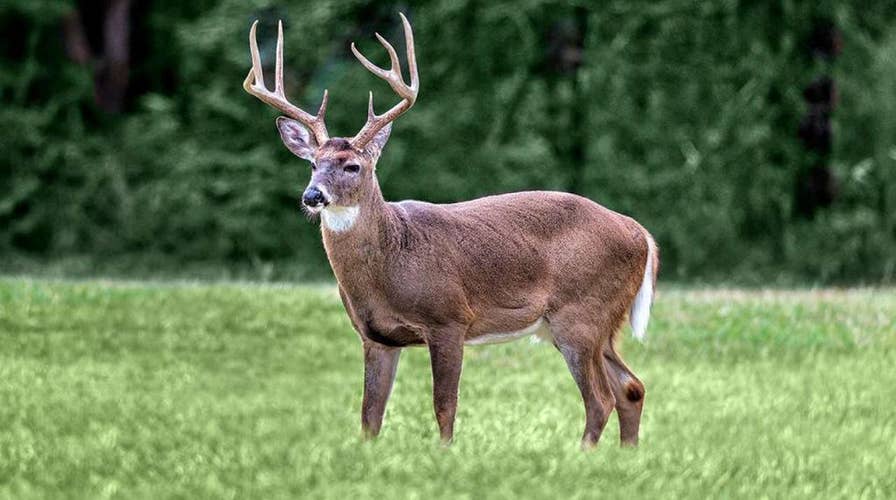Deadly ‘zombie’ deer disease could spread to humans
A deadly ‘zombie’ deer disease could possibly spread to humans, experts are warning.
A ranch-raised elk in Oklahoma tested positive for the deadly, so-called “zombie” deer disease after the animal died of injuries earlier this month, officials said Wednesday.
Routine testing determined that the 2-year-old bull elk carried the illness known as Chronic Wasting Disease (CWD), according to a news release from the Oklahoma Department of Agriculture, Food & Forestry (ODAFF) and the Oklahoma Department of Wildlife Conservation (ODWC).
The ODWC describes the disease as “a fatal neurological disease that affects the brains of elk, deer and other cervid species.” Symptoms can include drooling, stumbling, aggression, listlessness and insatiable thirst.
There is no vaccine or treatment for the disease, which officials say spreads directly through animal-to-animal contact but also indirectly through contaminated soil, drinking water or food.
While there have been no documented health risks to humans or animals other than cervids, experts have claimed it could be possible for humans to contract the disease through the consumption of contaminated meat.
“Animal studies suggest CWD poses a risk to some types of non-human primates, like monkeys, that eat meat from CWD-infected animals or come in contact with brain or body fluids from infected deer or elk. These studies raise concerns that there may also be a risk to people. Since 1997, the World Health Organization has recommended that it is important to keep the agents of all known prion diseases from entering the human food chain,” the Centers for Disease Control and Prevention (CDC) adds.
The elk came from a farmed breeding facility in Lincoln County, officials said. The facility and its associated commercial hunting area have since been quarantined. The wildlife department also said it will test wild deer near the facility.
CLICK HERE TO GET THE FOX NEWS APP
The rancher could potentially lose the entire stock and not be allowed to raise any cervid species on the property again, state veterinarian Rod Hall told Tulsa World.
“If we’re going to have this kind of impact on someone, we want to make sure beyond a doubt, but at the same time we will assume it is correct until we know differently. That’s why we’ve put a hold on everything,” Hall said.
This marks Oklahoma’s second confirmed case of CWD in farmed elk, officials said. The first case occurred in Oklahoma County in 1998.
Fox News' Madeline Farber contributed to this report.
